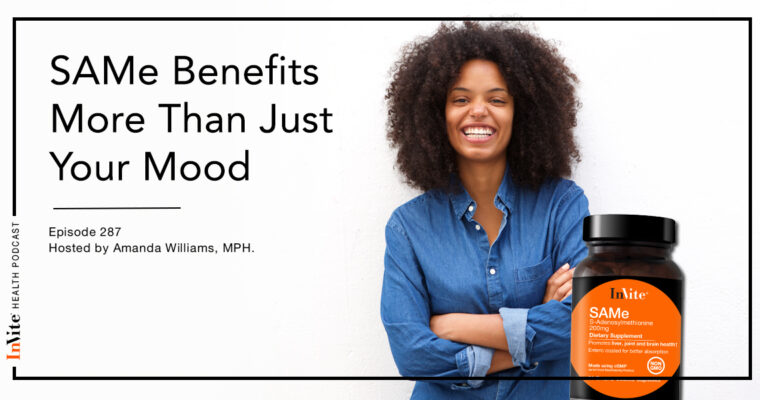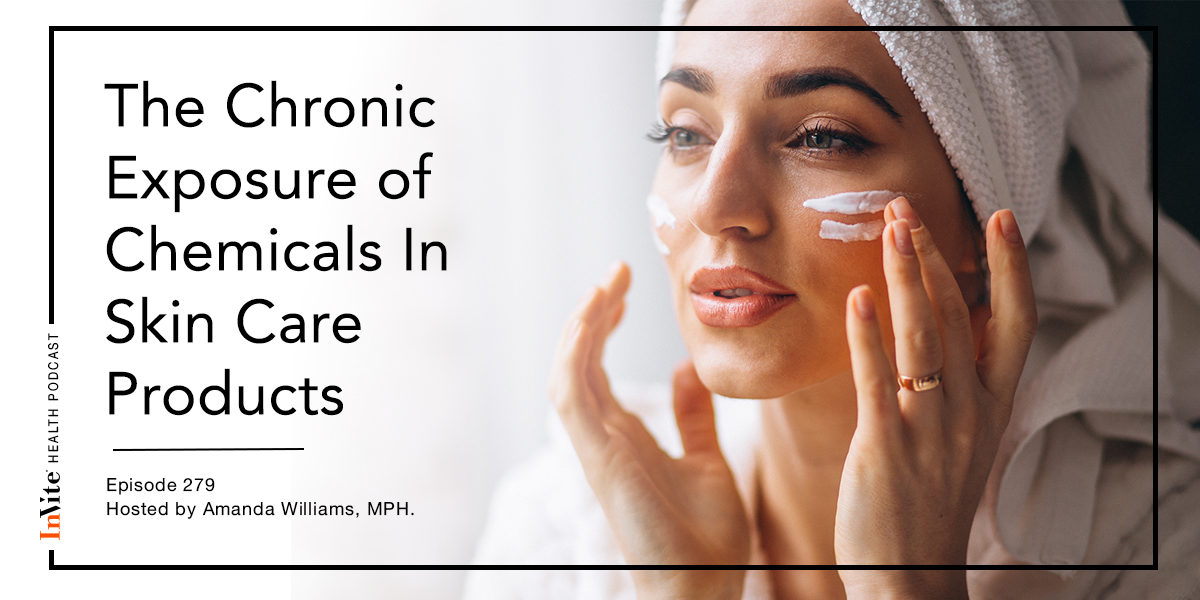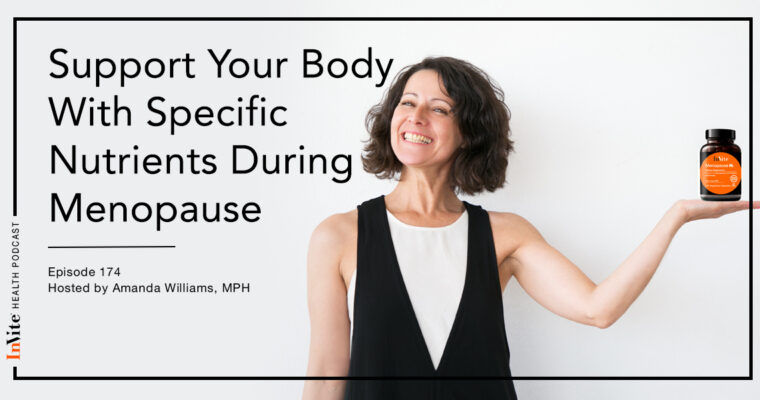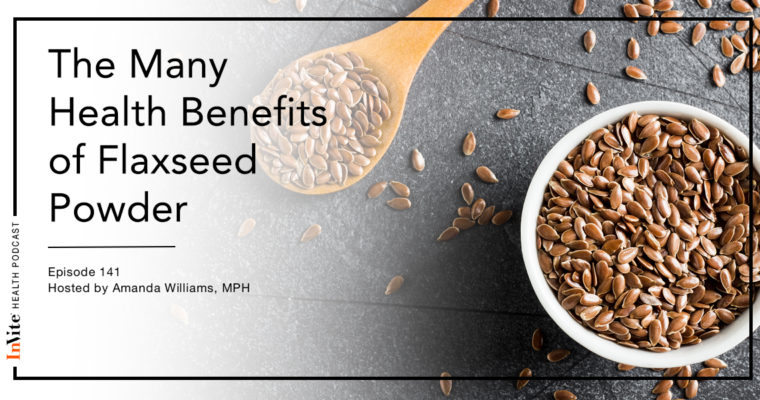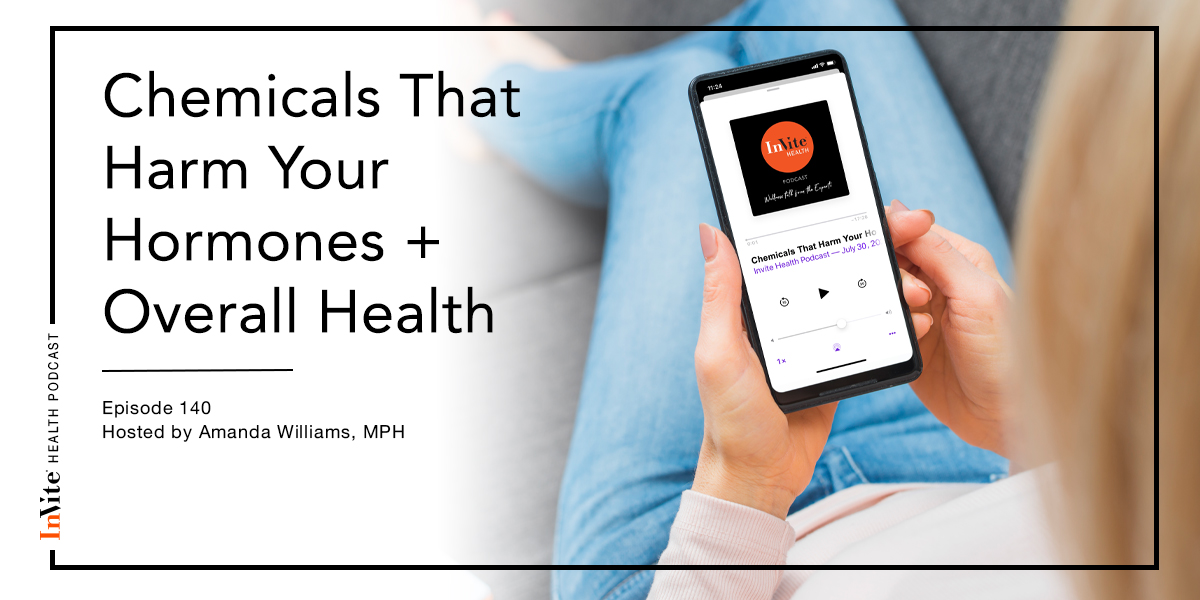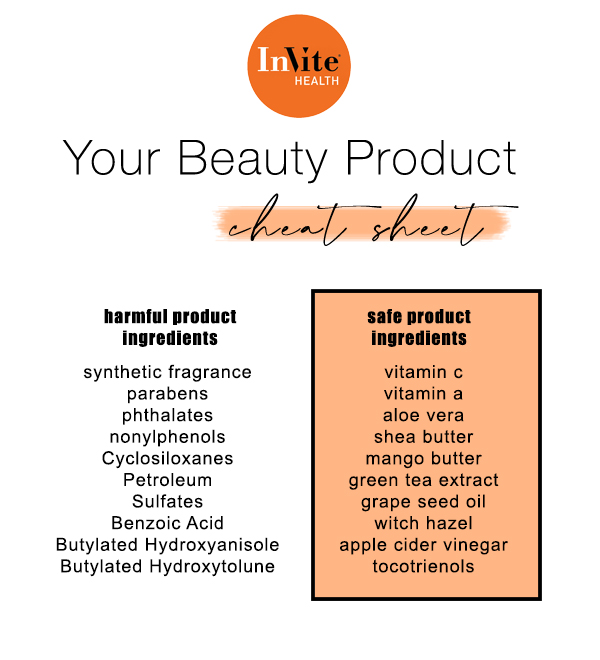Invite Health Podcast, Episode hosted by Amanda Williams, MPH
Subscribe Today!
When we think about our skin, we have to realize that this is a really integral part of our overall health. When we recognize all the ways in which the skin is utilized to support our existence, it really is quite pronounced. It’s not just the external protection that we think of. Our skin also plays a really critical role in terms of temperature regulation, sensory detection and toxin removal.†
We also have to realize that the skin is something that we have to protect from environmental pollutants and harmful chemicals that we are perhaps applying to our skin. That is why I want to talk about those chemicals and the science of what that actually means when we are applying some of these harmful chemicals topically to our skin. What does it mean when these chemicals get absorbed in and now the liver has to deal with it? This is a major problem and not just for women. We can find a lot of harsh chemicals in shaving creams, shaving gels and other products that are geared more towards men. This is something that I think needs to be addressed.†
How To Manage Eczema and Psoriasis – InVite Health Podcast, Episode 272. Listen Now >>
Endocrine disruptors
Many of these different beauty products contain multiple chemicals that can really adversely impact our health. Some of these ingredients include phthalates and parabens. Another one is formaldehyde, which is often thought of as embalming fluid. It’s interesting that manufacturers are putting formaldehyde into products that we are applying to our skin. What about lead, mercury and so many other harmful endocrine-disrupting chemicals that we expose ourselves to, oftentimes unknowingly, each and every single day? Exposure to these chemicals over the course of weeks, months and years can lead to full-blown endocrine disruption.†
Endocrine disruption is related to our hormone system. We can affect the sex hormones. We can impact the pancreatic hormones, like glucose and insulin. We can affect our thyroid hormone.†

These cosmetic and beauty products contain a wide range of these different harmful chemicals that we’re exposed to each and every single day. We need to know which substances are actually dangerous. We now know that many of them are and we can even get into the whole world of fragrances. Fragrances, which do not have to be disclosed by the manufacturer, are basically blends of different harsh chemicals.†
The dangers of phthalates
We need to be very, very smart about how we approach the products that we purchase and use. When you look at the preservatives that are used, this is when you get into the whole world of parabens and phthalates. There’s this very widely used group of chemicals known as phthalates that are endocrine disruptors, meaning that they pose a significant, relevant and validated risk to reproductive health, fertility and thyroid function. This has been studied time and time again. Phthalates are detected in nearly every single American, from babies all the way to people who are 100 years old. The CDC did a large national survey looking at phthalate levels in women of childbearing age and they were very surprised to see that those phthalate levels were incredibly high.†
Collagen Loss May Accelerate Aging – InVite Health Podcast, Episode 226. Listen Now >>
Phthalates are not just listed on labels. They are just common ingredients that you find in everyday cosmetic and body care products, so you’re not generally going to recognize that there are phthalates in them. Companies are not required to list them because they can fall under the category of fragrance.†
The Environmental Working Group tested a whole slew of brand name products and more than three quarters of them contained phthalates. It’s widespread. We know that phthalate exposure has been linked to hormonal changes in children, reduction in sperm production in men, DNA changes, increase in obesity and a greater likelihood of developing type 2 diabetes.†
Tune into the full podcast episode to learn more about the chemicals found in skin products and how they can impact the body.
Thank you for tuning in to the Invite Health Podcast. You can find all of our episodes for free wherever you listen to podcasts or by visiting www.invitehealth.com/podcast. Make sure you subscribe and leave us a review! Follow us on Facebook, Twitter and Instagram at Invite Health today. We’ll see you next time on another episode of the Invite Health Podcast.



